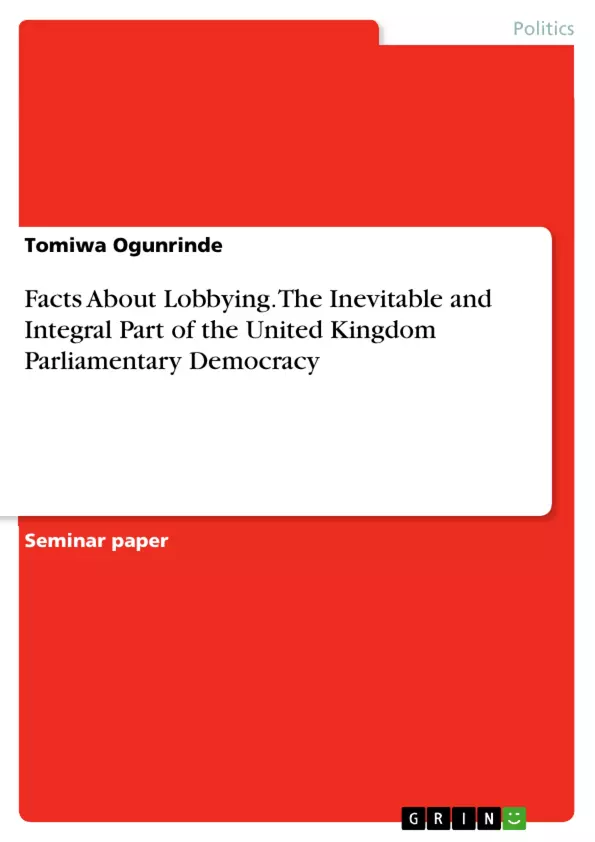Lobbying is seen as a dirty word in the political space. It has been compared to subverting the interests of others, deliberate use of positions, personality, power and wealth swing the mind of policymakers in a certain way. Media portrayal of lobbying often gives the impression that those who lobby do that to the detriment of the whole public. It is also seen as that area of government or public life that is wielded away from the public gaze. Be that as it may, the word lobby comes from the incident that occurred after the fire that burned the first American White House, President Ulysses Grant, who was living in a hotel at the time, protested about the involvement of all the people who were waiting on the ground floor (lobby) to try to sway him. The word hasn't changed. While the term may have acquired wider usage in Washington, D.C. as a result of this activity during the Grant Administration, the Oxford English Dictionary lists several recorded uses of the term long before Grant's presidency, including use in Pennsylvania as early as 1808.
Table of Contents
- Introduction
- Literature Review
- Analysis
- Conclusion
- References
Objectives and Key Themes
This paper explores the nature and role of lobbying in the United Kingdom's parliamentary democracy, arguing that lobbying is an essential and inevitable part of the political process.
- The practice and ethics of lobbying
- The historical development of lobbying in the UK
- Lobbying as a tool for shaping policy and legislation
- The influence of interest groups and advocacy organizations
- The relationship between lobbying and democratic principles
Chapter Summaries
- Introduction: This chapter introduces the concept of lobbying and its perception in the political landscape, addressing its history, definition, and key characteristics.
- Literature Review: This section examines existing research on lobbying, highlighting its diverse perspectives and methodological approaches, and identifying gaps in the existing literature.
- Analysis: This chapter analyzes the role and significance of lobbying in the context of the UK's parliamentary democracy, exploring its impact on policy-making and the interplay between interest groups, policymakers, and public opinion.
Keywords
The main keywords and focus topics of the text include lobbying, parliamentary democracy, interest groups, advocacy, policy-making, political influence, ethics, strategic communication, and the UK political system.
- Quote paper
- Tomiwa Ogunrinde (Author), 2021, Facts About Lobbying. The Inevitable and Integral Part of the United Kingdom Parliamentary Democracy, Munich, GRIN Verlag, https://www.grin.com/document/1036914



